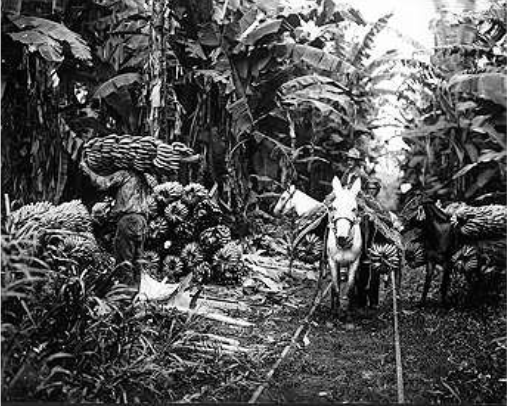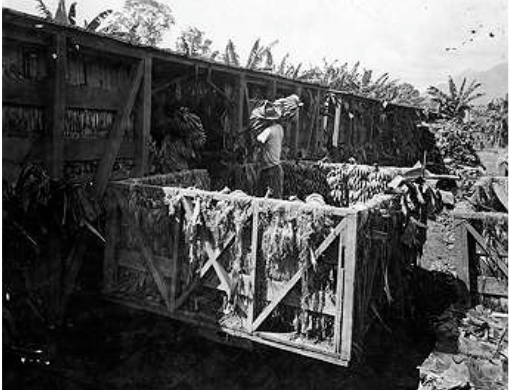

During the beginning of the twentieth century, the United Fruit Company emerged as the largest North American banana importer in Honduras. United Fruit came to own properties in Honduras, as well as properties in many other Latin American countries. This was a time of major political and economic change for Honduras.
In 1899, the first shipment of bananas was shipped from Honduras to the United States. Attracting the attention of the United States government, trade grew rapidly and United Fruit constructed railroad lines and roads to support the expanding banana production. This was the first time the United States had a major role in Honduran policies, so the United States was distrustful of Honduras’ instability. The United States would often send warships to waters near Honduras as a warning in case the United States’ intervention was ever threatened.
During this time, the economic well-being of Honduras was tied to the banana trade, meaning Honduras became a “banana republic.” This means that Honduras was dependent on the export of bananas for its sole profit in trade. However, the export of the bananas from Honduras represented no more than three percent of United Fruit’s banana imports. The companies that controlled the marketing of bananas were able to manipulate Honduras’ contribution of its exports. Therefore, this gave United Fruit a lot of power over Honduras as the company was necessary for Honduras’ economy to strive.
Works Cited
Moberg, M. (1996). Crown Colony as Banana Republic: The United Fruit Company in British Honduras, 1900-1920. Journal of Latin American Studies, 28(2), 357-381, www.jstor.org/stable/157625
United Fruit Company Photograph Collection, 1891–1962. Baker Library Historical Collections, https://www.library.hbs.edu/hc/pc/large/united-fruit.html
